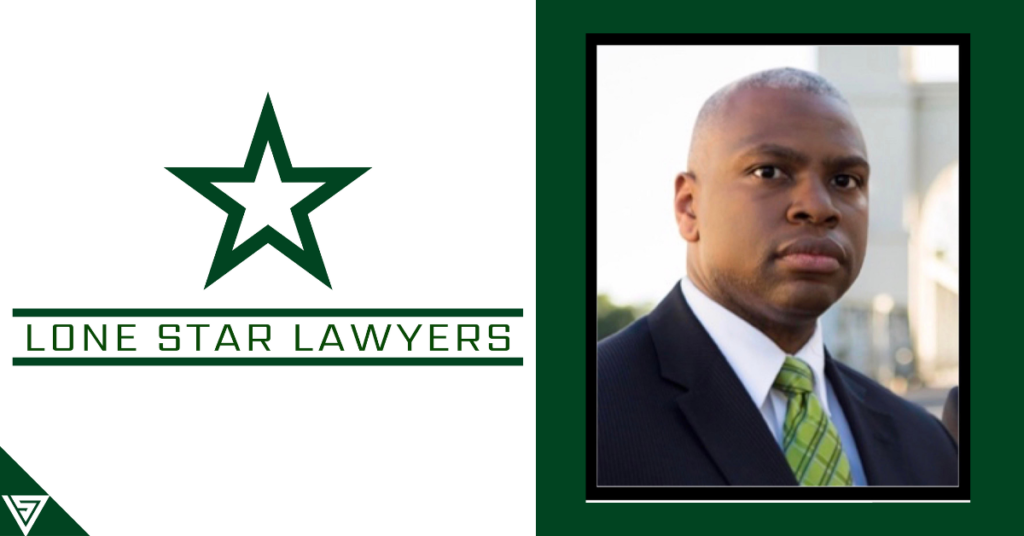Monday Mentors with Waco Criminal Defense Lawyer Robert Callahan

Robert Callahan joins us on today's episode. Robert is the founding partner of the criminal defense law firm Callahan & King in Waco, TX, a racial justice advocate, and co-host of the Movie Verdicts episodes of Lone Star Lawyers. In this episode, Robert talks about starting and building a law firm, race in the criminal justice system, and how lawyers can be racial justice advocates.
His firm/practice
- Central Texas firm that does mostly criminal defense with a mix of family and trusts/estates/planning as well.
- Four attorneys
- Started in private practice in 2011 after several years of working in the McLennan County District Attorney's Office
- Wasn't sure switching from the prosecution to the D side and also running a business
- Had an offer to join a DA office down near the Texas border
- But after praying through it, felt that he and his family were supposed to stay in Waco and help raise the level of justice
- First office was a 10x14 windowless room; tough for an extrovert!
- Partnered with Chris King in 2013 who was a former intern of Robert's
COVID Update (as of 1/28/21)
- Feels like things are on the rebound from a business standpoint
- March 2020 brought the entire justice system to a halt; jails were only taking those who were charged with the most serious offenses
- Things rebounded in the summer months alongside the help of the PPP loans
- Excited to retain some of the great things that we've learned moving forward
- As time passes, cases don't get better, though it tends to work in favor of the defense in a criminal context.
- Local DA/judges have been good about getting non-violent offenders out of jail
- For the more serious offenders in jail, the delays in the process can be hard...but at the same time you don't want to go through a trial in a courtroom and come out with a not guilty verdict plus a lethal case of COVID.
Race
- Right now, COVID is impacting minorities in the justice system at a higher rate
- When he started in private practice in 2011, he was one of three black attorneys in the county (one since passed away)
- In 2021 there are six
- With so few, he feels responsible to use his voice/platform for these issues
- Michael Morton Act / Prosecutorial ethics
- When everyone in the system works in their silos and doesn't consider others in the system or the system overall, it can lead to grave injustices
- Prosecutors have tremendous discretion to decide whether to take case, how to charge. They wear the white hats in the courtroom, get to speak first/last, and it's critical they use that power with integrity
- Concerned that the conversation that began after the death of George Floyd will fade away
- The system didn't bring justice in that and other cases; it had to be crowdsourced
- Pressure on different elected officials, bringing awareness, protesting, etc.
- News cycle moves on
- We haven't had a jury since George Floyd, Breonna Taylor, and Ahmaud Arbery, and since the difficult 2020 election. There are strong feelings about race, and those things will have be be probed when we pick juries, and there isn't practically enough time to do that well.
- (Jamar Tisby, The Color of Compromise): It was never the majority that got the Civil Rights movement, it was a vocal minority. It's that remnant today that is the source of where change is going to come from.
- Biggest change that needs to happen now in the criminal justice system is police reform / police brutality. This is the closest fire. Stop killing black people in the course of detentions.
- 8 Can't Wait
- These can happen at the local/state level
- Lawyers can
- give their time/talent/legal services
- use relationships with elected officials to advocate for change and bring awareness
- read The New Jim Crow, Just Mercy
- Law firms/the legal industry
- Don't use the old metrics of grades/test scores to determine the potential of candidates
- Just three years ago, he learned that he had a learning/reading disorder in the course of learning the same about his daughter, and that led to poor performance on law school exams. In advocacy courses he did great and performed well in mock trial.
- You will miss good candidates by not looking deeper than just academics
- Anybody with enough time/prep can learn the practice of law, but he can't teach you integrity or how to be a good person.
- He has never asked a candidate about their grades, their exam scores, etc. Only care about the person's character.
- Don't use the old metrics of grades/test scores to determine the potential of candidates
Rapid Fire Questions
- Name one trait characteristic you most want to see in an associate: character
- What habit has been key to your success: hiring people that have the characteristics that he lacks
- Favorite app/productivity tool: Facebook and Google Sheets
- Favorite social distancing activity: Hanging out with friends on front yard, fire pit, drinking wine
- Favorite legal movie: My Cousin Vinny (though he has given 100s to Hamilton and Primal Fear on Movie Verdicts!)
Thanks again to Robert Callahan for joining us on today's show. You can find him on Facebook: @rcallahanwaco, Instagram: @rcallahan_waco, Twitter: @rcallahanwaco, or email him: callahankinglaw@gmail.com.
